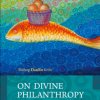INTERNATIONAL CHRISTIAN MINISTRIES
Krajina Scholarship Information for the Spring Semester 2019
ELIGIBILITY for the Awards:
International Christian Ministries (ICM) in cooperation with the Serb National Federation (SNF) award up to 15 Scholarships to applicants who are undergraduate students at community colleges or universities. Applicant or at least one of his/her parents must be a refugee or descendent from the Republic of Croatia (Krajina region) from one of the following municipalities: Benkovac, Vojnic, Vrginmost, Glina, Gracac, Dvor, Donji Lapac, Drnis, Knin, Korenica, Kostajnica, Krnjak, Obrovac, Petrinja, Plaski, Slunj, Zadar, Caprag, Grubisno Polje, Daruvar, Okucani, Pakrac, Slatina, Beli, Manastir, Vukovar, Dalj, Mirkovci, or Tenja.
Each Scholarship recipient will receive an award of $500 and a Membership in the Serb National Federation with an Annuity of $500. If an applicant is not a current member of the Serb National Federation, as a recipient of this Scholarship, he/she will automatically become a member of the SNF.
REQUIREMENTS FOR ALL APPLICANTS:
1. A completed and signed 2019 Scholarship Application
2. Applicant must be currently enrolled at an accredited college or university in the United States.
3. Proof that you are a refugee or descendent from the Republic of Croatia (Krajina region) (e.g., a Birth Certificate or copy of Passport)
4. Minimum GPA 2.5
5. College Transcript and Spring Semester 2019 Proof of Registration
6. Applicant must present a letter of recommendation from a priest describing church involvement (Sunday School, Altar Boy, Church Choir, etc.) or from a person qualified to verify the applicant’s interest and commitment to the Serbian community.
7. A recent passport-sized or wallet-sized photograph.
8. Submit essay about Krajina heritage (see application).
DEADLINE:
All application materials must be postmarked by JANUARY 15, 2019. No faxed or e-mailed documents accepted.
Source: Serb National Federation




